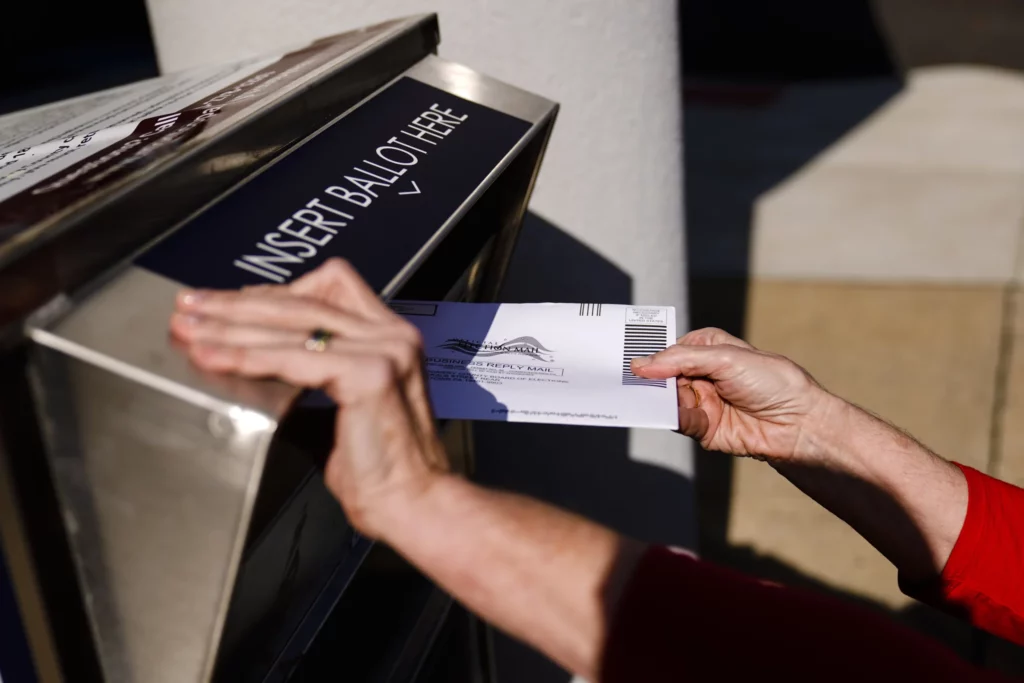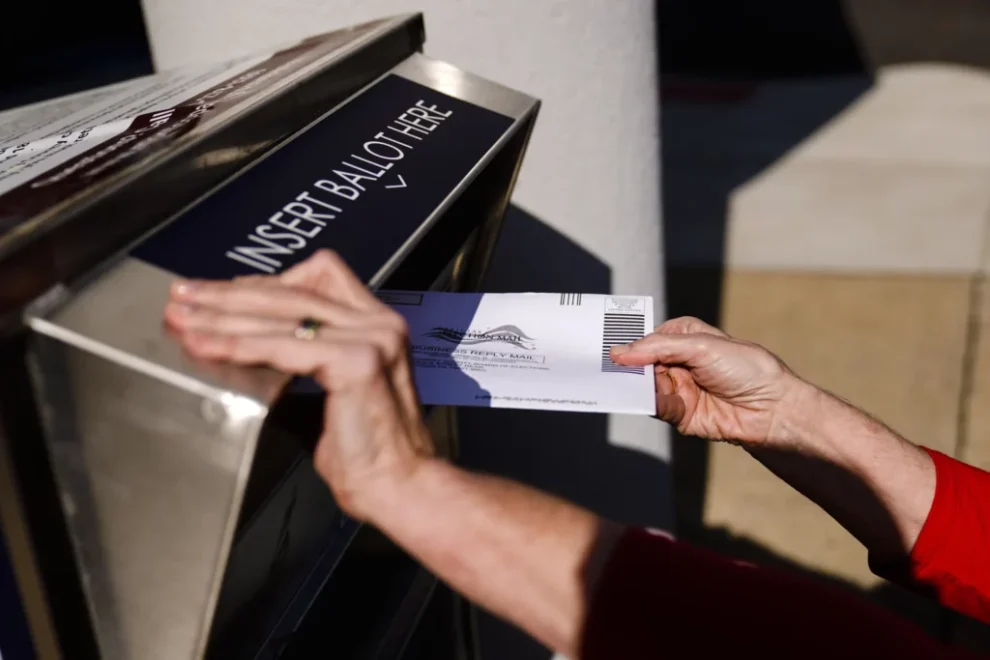The Democratic National Committee asked the Pennsylvania Supreme Court on Friday for a ruling by Election Day in a hotly contested fight over undated or misdated mail-in ballots.
The request comes after the Republican National Committee and the Republican Party of Pennsylvania appealed a lower court decision this week that struck down a state law requiring mail-in voters to fill out their ballots accurately in order to have them counted. A 3-2 decision among a panel of appellate judges found the requirement violates the free and equal elections clause of the Pennsylvania Constitution, and Republicans have since appealed to the state’s highest court.

“This case presents a question of ‘substantial public importance,’” attorneys for the DNC wrote in a court filing on Friday in the case, known as RNC v. Baxter.
“That question is whether the Pennsylvania Constitution’s Free and Equal Elections Clause … prohibits county boards of elections from refusing to count eligible voters’ timely received mail ballots solely because a voter did not correctly date the ballot-return envelope — a date that serves no purpose because a ballot’s timeliness is determined by when county officials scan it upon receipt,” the DNC said.
2024 ELECTIONS LIVE UPDATES: LATEST NEWS ON THE TRUMP-HARRIS PRESIDENTIAL RACE
The stakes of this case are indeed high for the swing state because 2.1 million requests for absentee ballots were approved and nearly 1.5 million ballots had been returned as of Wednesday, according to Secretary of State Al Schmidt’s office. The number of ballots with missing or incorrect dates for this election won’t be known until the ballots are processed.
To address complaints about confusion over the state’s law from groups including the American Civil Liberties Union, Pennsylvania election officials recently redesigned the ballot envelopes, aiming to reduce errors where some voters may mistakenly write unrelated dates, such as their birth dates, or erroneously write mismatched dates on the outside of the envelopes and on their ballot.
The lawsuit surrounds a lingering dispute from a September spescial election for two state House seats, where 69 ballots in Philadelphia were disqualified due to missing or incorrect dates.
The 3-2 decision by the Commonwealth Court of Pennsylvania dealt a blow to Republican efforts to enhance election integrity and protect the state’s law on Wednesday.
The majority found that the dating requirement “resulted in the arbitrary and baseless rejection of thousands of timely ballots, resulting in disenfranchisement in violation of the free and equal elections clause,” according to the decision.
But Judge Matthew Wolf, one of two judges who disagreed with the ruling, wrote that the decision risked causing confusion on the eve of the general election.
Another judge who disagreed with the majority, Patricia McCullough, said she wondered how counties would reconcile counting ballots if some voters received a second chance to cast a replacement ballot.
“Are the replacement ballots counted, are the original, defective ballots counted, or both?” McCullough asked in her dissent.
A separate but similarly high-stakes case at the Supreme Court
The case pending before the Pennsylvania Supreme Court also may have implications for a separate pending case at the nation’s highest court known as RNC v. Genser, which could be decided as early as Friday.
In that pending Supreme Court case, the RNC is asking the nine justices to preempt counties from distributing provisional ballots to voters who have already submitted mail-in ballots that may have contained disqualifying errors.
Republicans argue if a voter has already submitted a “timely” mail-in ballot, he or she should not be allowed to cast an additional ballot, for similar concerns raised by the two dissenting judges about the possibility of counting duplicate ballots.
Pennsylvania is unique in that the state legislature explicitly gives individual counties the authority to decide whether they want to offer curing options for problematic mail-in ballots. That means voters who live in some counties may have chances to fix their faulty mail-in ballots, while voters who live in other counties will simply have their faulty ballots discarded.
Pennsylvania Democrats back the plaintiffs in the case, Faith Genser and Frank Matis.
CLICK HERE TO READ MORE FROM THE WASHINGTON EXAMINER
Genser and Matis cast their mail-in ballots in Butler County and attempted to correct the problems by instead casting provisional ballots, an option election officials told them was available. However, Butler County later rejected their provisional ballots, saying they actually could not cast them since they had already mailed in ballots.
Butler County is among roughly three dozen counties in Pennsylvania that give voters who return defective mail-in ballots, such as those with missing or mismatched signatures, a chance to cure the ballots so that their votes will be counted. Genser’s and Matis’s mail-in ballots were defective because they did not put their ballots in mandatory inner sleeves, called “secrecy envelopes.” Butler County does not offer an option for curing those ballots, which are known as “naked ballots.”
























